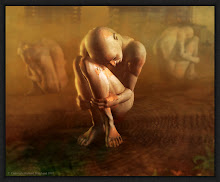Reacting to discrimination determines the eventual consequences and effects on both the perpetrator and the victim. The manner in which they confront the reality of the situation determines whatever happens after that. Dealing with incidents of discrimination is a very taxing effort which places a terrible burden on victims. They often feel angry, frustrated and helpless, especially when the authorities are involved-despite being members of the middle-class. Even when those discriminated against are members of the middle-class with more resources to handle the situation, it does not change the fact that it is still an added and unnecessary burden.
The temptation to react in certain ways when faced with discrimination is very much dependent on the location, time and nature of the act itself. However, it is certain that the victims almost always feel fear and anger. The urge to retaliate, to not stand still, can be overwhelming, almost to the point that we feel obligated to teach our oppressors a lesson. We question their actions, we force them to look at the pain they are causing us, and we demand for change. It certainly feels like the right thing to do, but one should never forget the tremendous effort needed to accomplish this. Victims of discrimination have to expend far greater energy in dealing with discrimination compared to their white counter-parts from the same economic class. This is despite the fact that racism is the problem of the racist.
I am often asked about my feelings and reactions whenever I am faced with discrimination, which is sadly a frequent reality. As is the case for most people, anger is the one of the first emotions that comes to mind, but I no longer believe that it is the appropriate one. Racism and bigotry is the problem of the person who practices it, not the victim themselves, because it is beyond the latter’s control. We can spout oaths, curses and threaten lawsuits, but the only way things will improve is if the person who discriminates realizes what they are doing and makes an attempt to deal with their racist beliefs. It does not make sense that the victims should sacrifice so much to try and ‘educate’ those who discriminate against them; it is neither the victim’s obligation nor responsibility.
However, by not reacting, the chances of perpetuating discrimination only increase. Some interviewees explained how they had used their middle-class resources to initiate some form of change, in restaurants and other public spheres. It is important to note that while victims can help make a change, they should never be thought of as the primary instigators. Only a racist can deal with their racism, and it is their prerogative to make an effort to do so. Victims should try to get rid of the burden of anger, as hard as it might be, and accept that it is someone else’s problem, not theirs. They can help that person overcome their prejudice, but should not have to carry that awful burden of frustration and anger.


